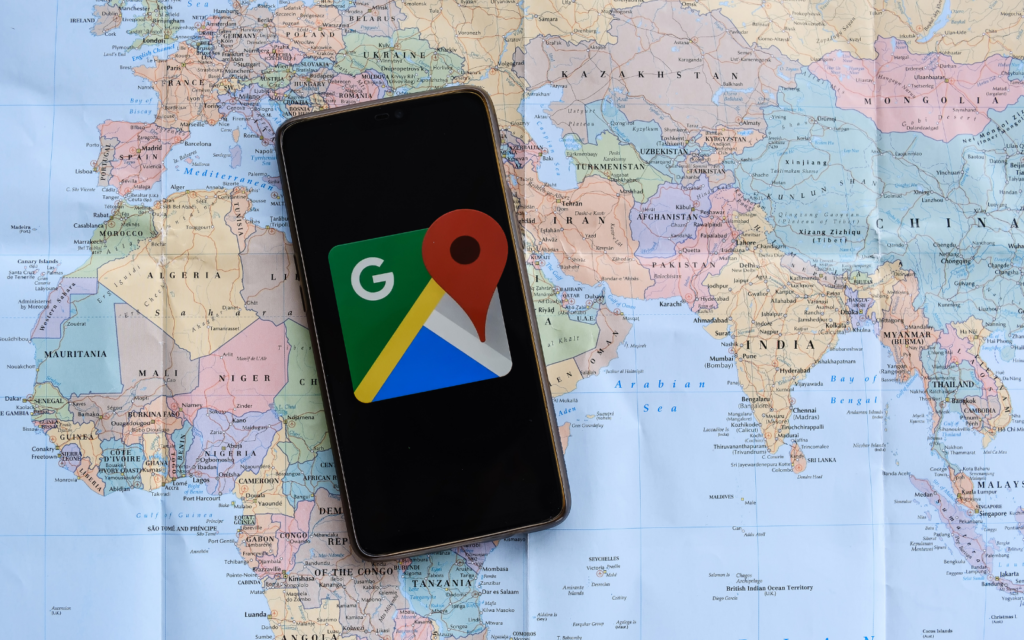Google disables live traffic data on Maps in Ukraine temporarily

On Sunday, Google confirmed that it temporarily disabled some Google Maps tools for users in Ukraine. Those tools showed info like live traffic conditions and where the busiest places are. The reasons for this should be obvious but just in case you haven’t been watching the news for the past week, Ukraine is dealing with some unwanted occupants.
A professor of California’s Middlebury Institute of International Studies tweeted at 3:26am on Thursday morning 24 February 2022 that Google Maps data showed there was a traffic jam in the wee hours of the morning from Belgorod, Russia to the Ukrainian border.
Google said the decision to disable traffic data and live info was in the interest of safety for the Ukrainians still in the country. Nearly 400,000 civilians have already fled to neighbouring countries. Russia, and what it’s calling its “special operation” forces, invaded the country last Thursday.
Source: Reuters
Mobile World Congress 2022 will ban some Russian Companies

While Russia continues its “special operation” in Ukraine, the rest of the world is trying to make that difficult for it. MWC 2022 is the first and largest industry trade show that will not allow a ‘handful’ of Russian companies identified on the US sanction lists to participate in the event or have any floor space. That’s according to John Hoffman, CEO of the event organiser GSMA. He said, “we are guided by the international sanctions and there are some companies that are identified on the sanction list and those will be barred from participating.”
The event is shaping up to be the biggest since the pandemic started in 2020 with 40,000 to 60,000 people expected to attend. Luckily there haven’t been any significant hotel cancellations in Barcelona related to the event, except for some representatives from eastern Europe. The return of the in-person event means the Nobu Hotel in Barcelona can reopen after closing for two years due to the pandemic.
Source: Reuters
The world’s largest sovereign wealth fund will bail on its Russian investments
Following the invasion of Ukraine, Norway’s sovereign wealth fund totalling $1.3 trillion dollars (R2.25 trillion), will begin to distance itself from its Russian investments. “We have decided to freeze the fund’s investments and have begun a process of selling out (of Russia),” Prime Minister Jonas Gahr Stoere said in a press conference.
The fund’s Russian investments consist of shares in 47 Russian companies and government bonds worth a combined 25 billion Norwegian Krone (R43.26 billion) at the end of 2021. That’s down from 30 billion Krone in 2020, according to Norway’s government. This isn’t the only financial hit Russia has suffered since it began its invasion last Thursday. The Russian stock market is knocking on the doors of record lows, having lost 7.9% of its value against the dollar the day Putin ordered his troops to invade.
Source: Reuters
Belarusian hackers disable trains to disrupt Russian troops
Belarusian hackers looking to do their part to assist Ukraine with the current ongoing Russian invasion have disabled some of the trains in their country. This is, according to them, an attempt to disrupt Russian troops heading to Ukraine through Belarus. According to The Cyber Partisans – that’s what the activist hackers call themselves – it stopped trains in the cities of Minsk, Orsha and Osipovichi by gaining access to the railway’s routing and switching devices and encrypting data they held. Bloomberg said it could not independantly verify the hacking groups’ claims.
The group said it wanted to “slow down the transfer” of Russian troops from military bases in Belarus to Ukraine’s northern border. The group said they put the train system into a manual control mode that would “significantly slow down the movement of trains, but will not create emergency situations.”
This comes after the Ukrainian government has actively sought out assistance from volunteer hackers as Russia’s invasion extends online.
Source: Bloomberg